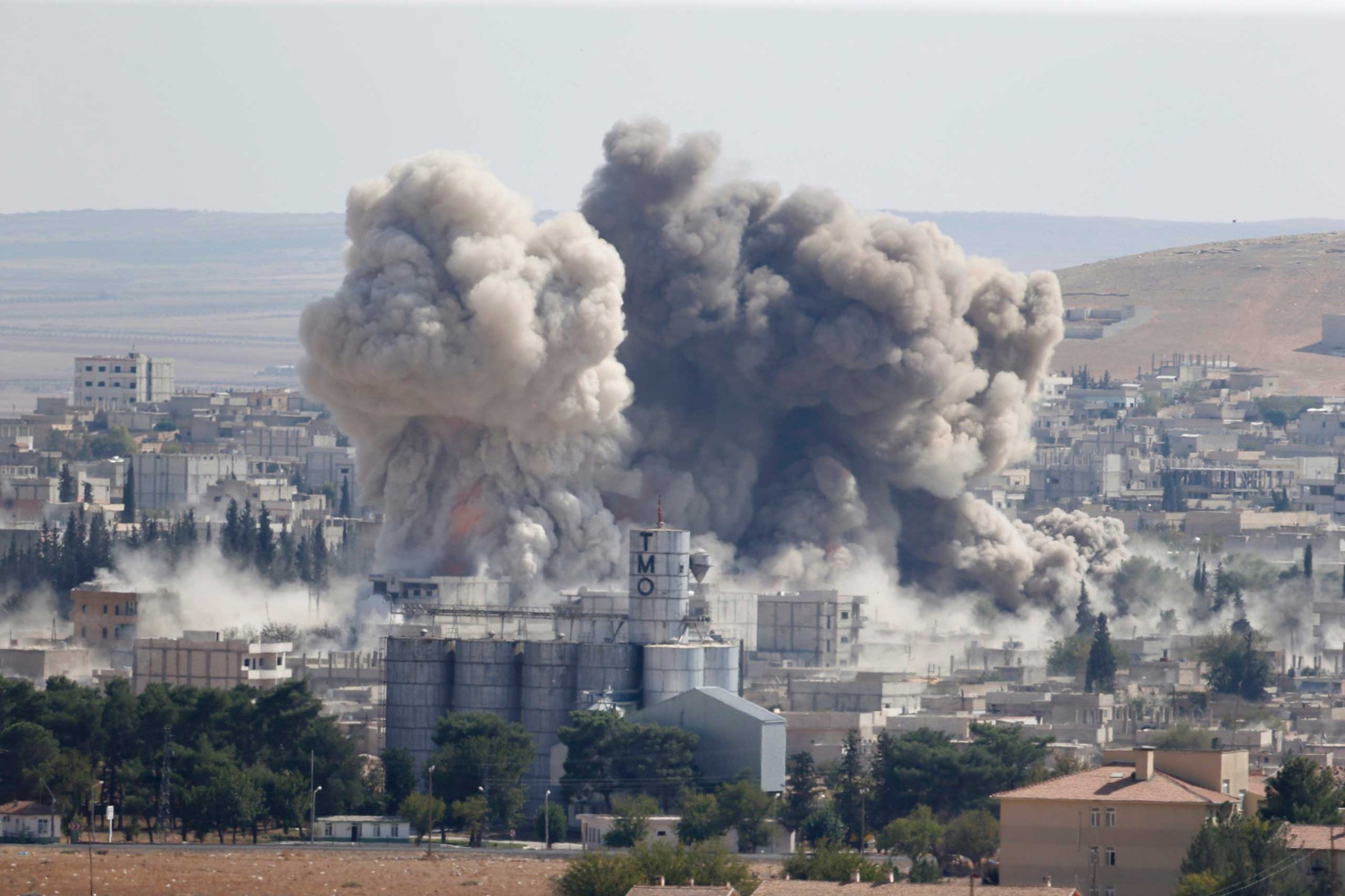
President Barack Obama is heading to the Pentagon Wednesday afternoon for an update on the battle against the Islamic State of Iraq and Greater Syria (ISIS), and he’s not going to like what he hears. The key Syrian town of Kobani is likely to fall to ISIS fighters in coming days, senior U.S. military officials will tell Obama—and there’s not a whole lot the U.S. and its allies can do to halt the ISIS victory or the expected bloodbath following its collapse.
“We’re not expecting any change to our strategy as a result of today’s meeting,” Pentagon spokesman Rear Admiral John Kirby said Wednesday afternoon shortly before the 3 p.m. ET session. “This is going to be a long, difficult struggle.”
An air offensive to protect Kobani from being overrun by ISIS totters on the verge of failure. Stepped-up allied air strikes and Kurdish defenders, armed with only small arms, are fighting up to 9,000 jihadists outfitted with tanks and rockets. But it seems to be too little, too late as ISIS’s black flags rose above an eastern neighborhood Monday and remained flying Wednesday. Kurdish officials have warned that ISIS militants would kill thousands if they prevail.
The fight for Kobani is a key test of a U.S. military strategy limited to air strikes, while its local allies on the ground in Iraq and Syria are proving ineffective or non-existent. Turkish troops with tanks are simply watching from across the border as the battle for nearby Kobani rages. Nearly half of the area’s 400,000 residents have fled to Turkey. U.S. officials are angry that Turkey, a NATO ally, has refused to do more to avert a slaughter, they say largely because of its bloody history with the Kurds. American officials are heading to Ankara to urge Turkish officials to do more.
The second piece of the U.S. strategy is training up to 5,000 moderate Syrian rebels a year to fight ISIS on the ground. But that’s a long-term gambit with no guarantee of success, because many of the rebels are more interested in fighting their three-year old civil war against Syrian strongman Bashar Assad than ISIS.
For now, the jihadists are doing their best to frustrate air strikes by abandoning key outposts and breaking into smaller units. They have given up little ground. The terrorist fighters are moving into civilian areas where they know the U.S. and its allies will not bomb—especially without hard intelligence from on-the-ground scouts they trust. Obama has refused to dispatch such spotters as part of his ban on U.S. ground troops in the conflict.
Obama will be meeting with Army General Martin Dempsey, chairman of the Joint Chiefs of Staff, who has told Congress he will ask Obama to dispatch U.S. ground troops—especially forward air controllers to call in air strikes—if Dempsey thinks it’s required. Kirby said the Pentagon would not be making such a request of Obama during Wednesday’s meeting.
The growing U.S. frustration has been evident as the U.S. ordered AH-64 Apache helicopters into action beginning Oct. 5 against militant targets in western Iraq. The low-and-slow gunship is better than a jet bomber for attacking moving targets. But that capability also makes its two crewmembers more vulnerable to ground fire. ISIS has shot down a pair of Iraqi choppers in recent days, killing all four pilots aboard.
More Must-Reads from TIME
- Why Biden Dropped Out
- Ukraine’s Plan to Survive Trump
- The Rise of a New Kind of Parenting Guru
- The Chaos and Commotion of the RNC in Photos
- Why We All Have a Stake in Twisters’ Success
- 8 Eating Habits That Actually Improve Your Sleep
- Welcome to the Noah Lyles Olympics
- Get Our Paris Olympics Newsletter in Your Inbox
Contact us at letters@time.com